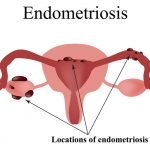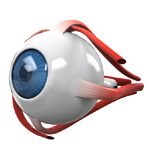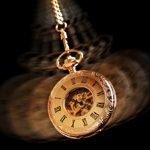When a woman reaches menopause, she may be relieved of the monthly cramping, backaches, and other symptoms of menstruation. However, these are often exchanged for a range of alternate issues that are not as easily resolved. Two of the most common menopause and post-menopause symptoms women experience are hot flashes and night sweats, both of which are uncomfortable and embarrassing for their sufferers. But now, new research has found that self hypnotism may be an effective tool for ridding women of these troubling conditions.
According to the study, which took place at Baylor University’s Mind-Body Medicine Research Laboratory in Waco, Texas, hypnosis was more successful in treating hot flashes than many other forms of treatment, with the exception of hormone replacement therapy1Boyles, Salynn. “Hypnosis Halts Hot Flashes for Some Women.” WebMD. 26 October 2012. Accessed 2 November 2012. < http://www.webmd.com/menopause/news/20121025/hypnosis_halts_hot_flashes > — and we all know the problems associated with HRT. The findings were based on a group of 187 women who had gone through menopause, all of whom were experiencing a minimum of seven hot flashes a day. The women were randomly divided into two equal groups.
The hypnosis group was provided with five weekly training sessions in which they were taught self hypnotism strategies. This included mental imagery techniques, such as thinking of a cool setting to counteract the hot flashes, as well as hypnotic suggestion recordings to use at home each day. In contrast, the second group met with a therapist to discuss menopause-related problems and was provided with information on how to best combat hot flashes.
Based on the volunteers’ self-reporting in symptom diaries and sensors that had been placed on their bodies to indicate temperature fluctuations such as those that occur in hot flashes, the scientists were able to determine a much larger reduction in symptoms took place for the hypnosis group than the information-only group. Twelve weeks into the research, the women receiving hypnosis were logging an average of 74 percent fewer hot flashes than before, while the other group stated a reduction of merely 17 percent. Part of that may reflect somewhat of a placebo effect, since those numbers were based on the reports of the women in their journals. Still, even the sensors showed a vast improvement for the hypnosis volunteers–a difference of 57 percent fewer hot flashes. The group without hypnosis had only 10 percent fewer hot flashes than before the study.
This is certainly a potential source of benefit to the many women who are uneasy about hormone replacement therapy but have to deal with hormonal changes such as hot flashes when menopause sets in. Hot flashes and night sweats are the most frequently reported issues related to menopause, and they are believed to strike more than half of women once they have entered menopause. Hot flashes occur suddenly, and the woman typically feels overwhelmed by heat, with her face reddening and her body sweating. When the flash passes, she is left feeling cold and clammy.2”Hot flashes.” Mayo Clinic. 11 June 2011. Accessed 2 November 2012. < http://www.mayoclinic.com/health/hot-flashes/DS01143 > Night sweats are a form of hot flashes that occur during sleep and can be intense enough to rouse a woman.3”Menopause.” National Institute on Aging. April 2008. Accessed 2 November 2012. <http://www.nia.nih.gov/health/publication/menopause>
In the past, many doctors would prescribe hormone replacement therapy (HRT) for women complaining of such symptoms, and some still do. However HRT has been linked to several health issues, including an increased risk of developing breast cancer.4Neal, Rome. “Dangers of Hormone Replacement?” CBS News. 11 February 2009. Accessed 2 November 2012. < http://www.cbsnews.com/2100-500165_162-560448.html > Therefore, it is very welcome news that a safe alternative treatment such as hypnosis might provide relief from menopause problems without any of the dangers associated with pharmaceutical solutions. If you are interested in pursuing this type of treatment, find a trained and well-qualified clinician through a local alternative medicine school or a national society for hypnosis.
There are other options, of course, for those seeking a safe, natural remedy to hot flashes and other menopausal issues as well. In a 2009 study at Henry Ford Hospital in Detroit, scientists found that acupuncture was even more successful at reducing hot flashes than drug therapy.5Walker, Eleanor M., et al. “Acupuncture Versus Venlafaxine for the Management of Vasomotor Symptoms in Patients With Hormone Receptor–Positive Breast Cancer: A Randomized Controlled Trial .” Journal of Clinical Oncology. 28 December 2009. Accessed 2 November 2012. < http://jco.ascopubs.org/content/28/4/634.abstract?sid=79404423-4f33-4c0b-96cb-b3ecc12a77e9 > And Jon Barron has reported before about the many benefits of supplementation with a natural progesterone crème for women of all ages, or a bio-identical estriol crème for menopausal women. Hot flashes and night sweats–along with numerous other menopause symptoms and more–can be relieved by balancing out the estrogen levels in the body.
Did you enjoy this information? Get this type of information and more delivered right to your mailbox by subscribing to our free daily health alerts at https://www.jonbarron.org/natural-health/free-daily-health-tips!
References
| ↑1 | Boyles, Salynn. “Hypnosis Halts Hot Flashes for Some Women.” WebMD. 26 October 2012. Accessed 2 November 2012. < http://www.webmd.com/menopause/news/20121025/hypnosis_halts_hot_flashes > |
|---|---|
| ↑2 | ”Hot flashes.” Mayo Clinic. 11 June 2011. Accessed 2 November 2012. < http://www.mayoclinic.com/health/hot-flashes/DS01143 > |
| ↑3 | ”Menopause.” National Institute on Aging. April 2008. Accessed 2 November 2012. <http://www.nia.nih.gov/health/publication/menopause> |
| ↑4 | Neal, Rome. “Dangers of Hormone Replacement?” CBS News. 11 February 2009. Accessed 2 November 2012. < http://www.cbsnews.com/2100-500165_162-560448.html > |
| ↑5 | Walker, Eleanor M., et al. “Acupuncture Versus Venlafaxine for the Management of Vasomotor Symptoms in Patients With Hormone Receptor–Positive Breast Cancer: A Randomized Controlled Trial .” Journal of Clinical Oncology. 28 December 2009. Accessed 2 November 2012. < http://jco.ascopubs.org/content/28/4/634.abstract?sid=79404423-4f33-4c0b-96cb-b3ecc12a77e9 > |












I’ve been using natural
I’ve been using natural methods to treat my menopause symptoms such as soy isoflavones and more Vitamins (B especially). I also drink lots of water which helps. I never thought of hypnosis and will definitely do more research as my symptoms can be overwhelming at times.
I just found a fantastic
I just found a fantastic option to help recovery my Mother to her menopausal period. That was great. Thanks for the blog.
There are actually a couple
There are actually a couple of ways to cure menopause symptoms. Many women see hormone replacement therapy as an alternative to ease their menopausal discomforts. Others perceived hypnosis or hypnosis therapy as great and natural menopause treatment too. Either ways, it is still safe if we get a doctor or any professional health experts to give us proper prescriptions.